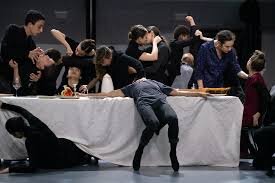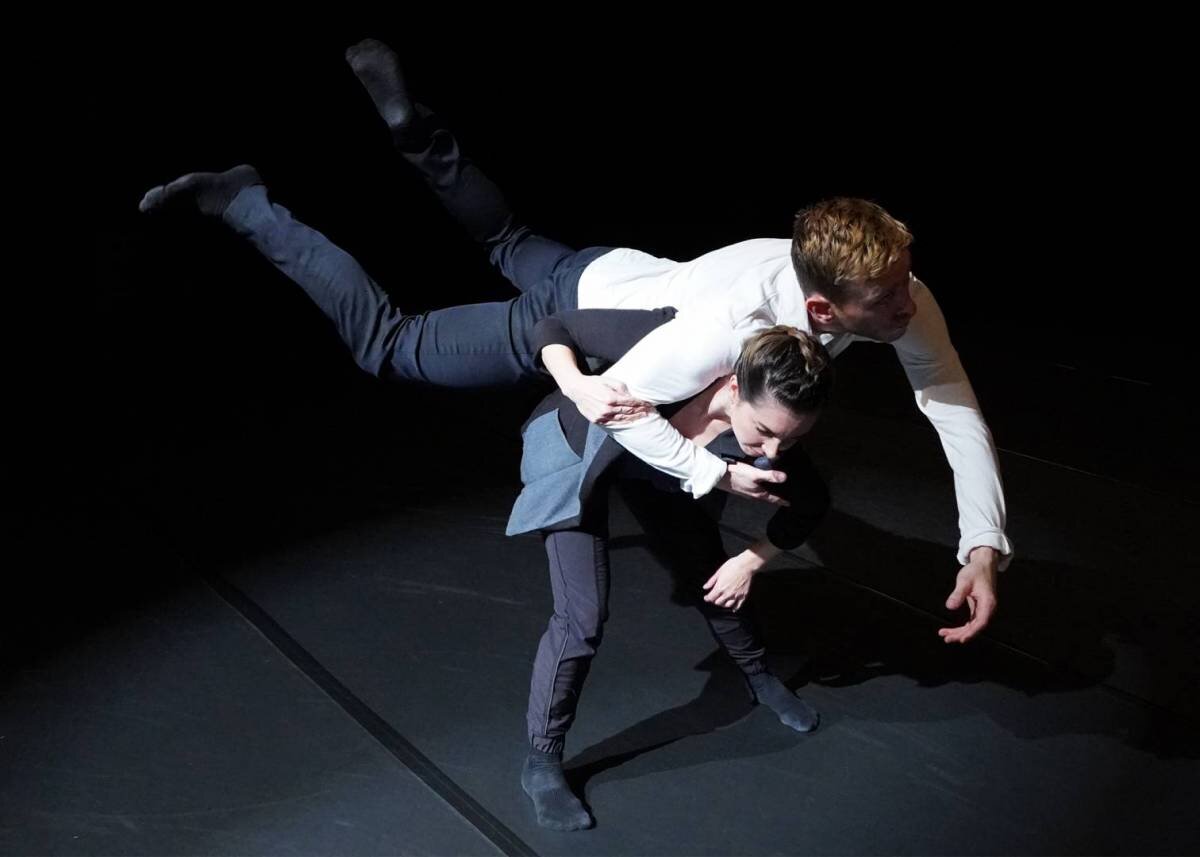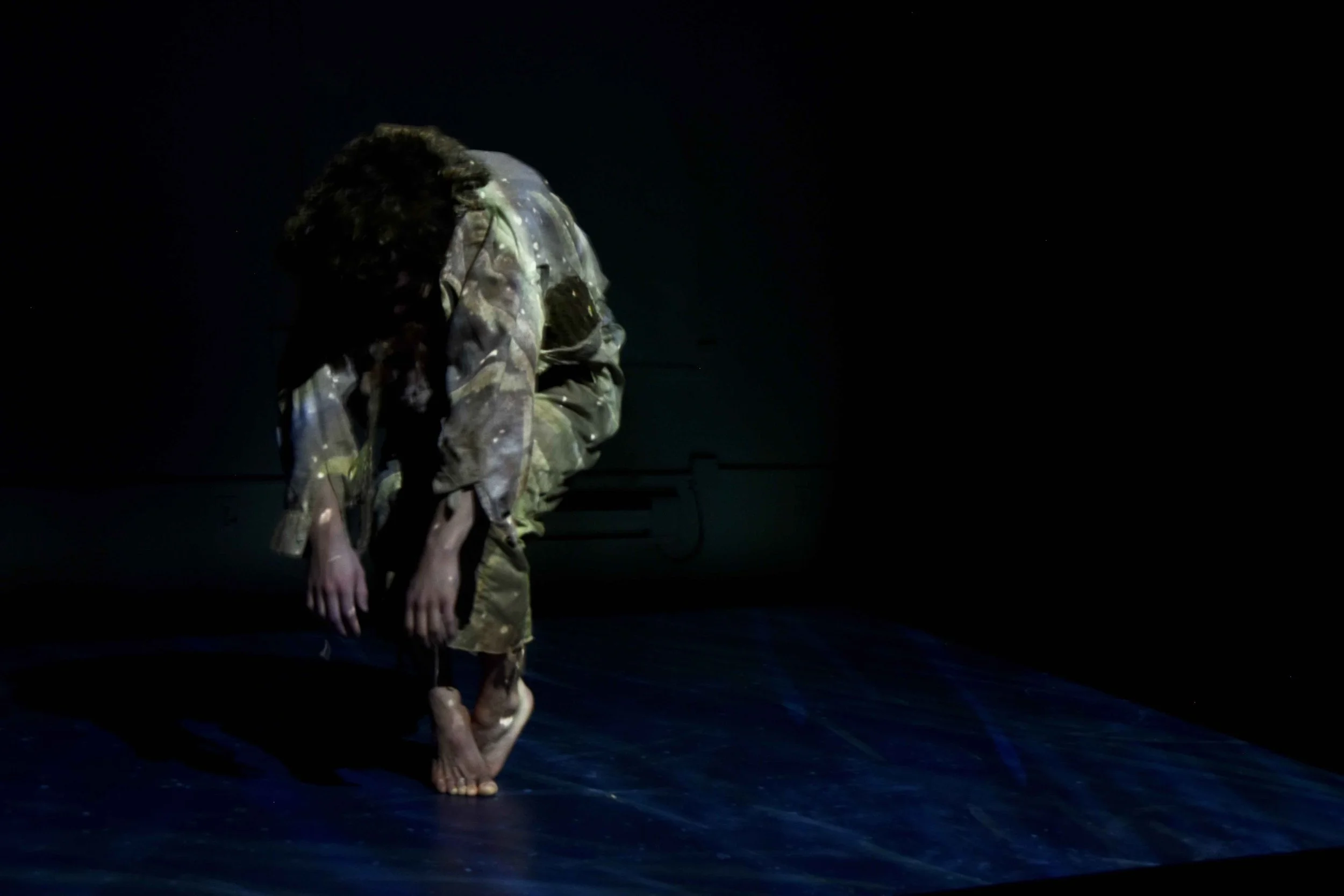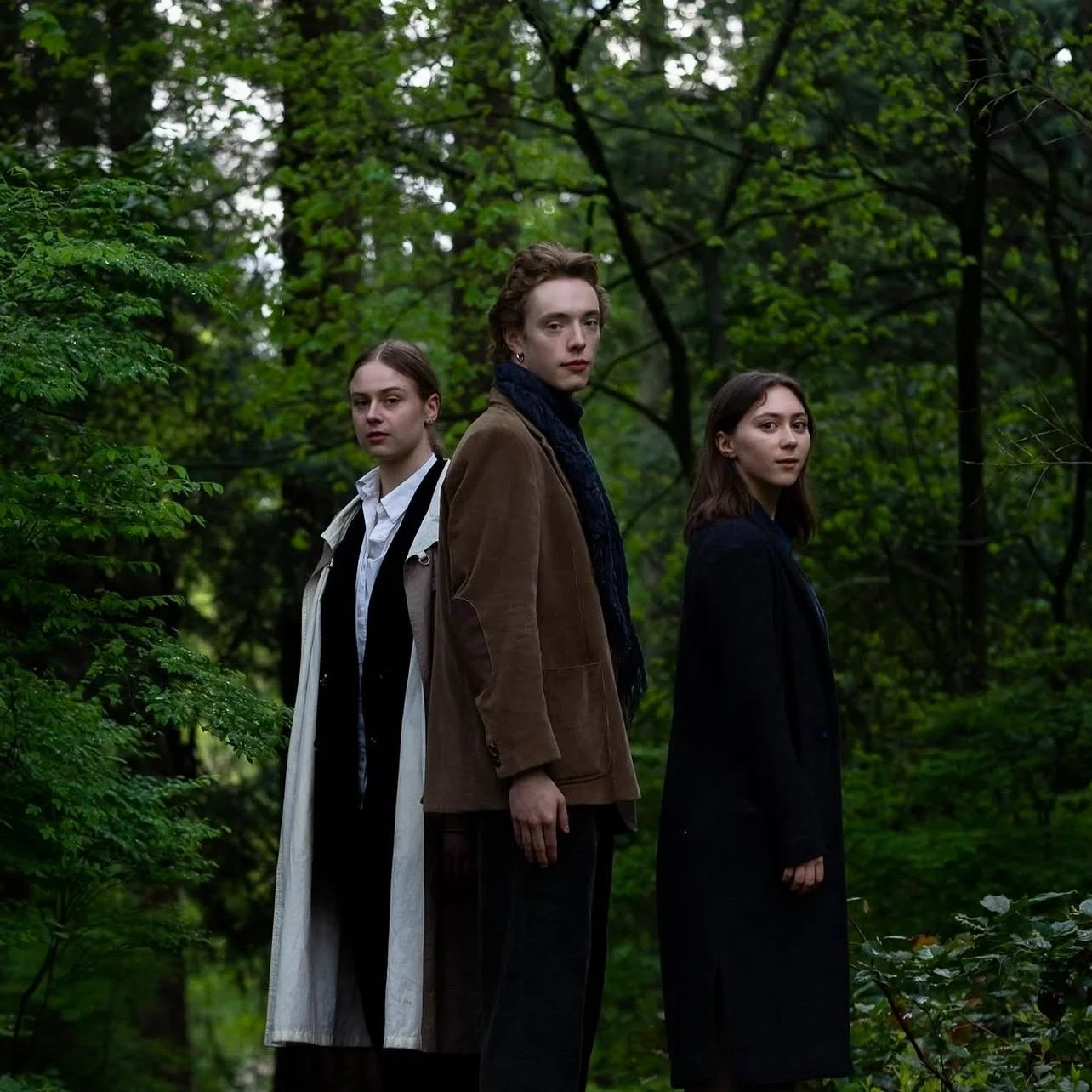Dance review: Chutzpah! Festival continues to push dance-theatre realms, even online
Idan Cohen’s Hourglass and Ella Rothschild’s Pigulim draw from clowning and physical theatre, but also darker themes
Ella Rothschild’s Pigulim. Photo by Efrat Mazo
Brandon Lee Alley and Racheal Prince in Idan Cohen’s Hourglass. Photo by Theo Bell
OVER THE YEARS, Vancouver’s Chutzpah! Festival has—somewhat surprisingly to newcomers—been one of the year’s reliably risk-taking showcases for cutting-edge contemporary dance.
And with that in mind, we’re happy to report that, even with a new artistic director and pandemic-enforced online programming, the fest delivered two form-pushing, thought-provoking works again.
One of the pieces, Hourglass by Idan Cohen, was created here in Vancouver by an Israeli ex-pat working with two top-flight local ballet dancers and pianist-conductor Leslie Dala. The other was by Tel Aviv’s Ella Rothschild, an alumna of legend Ohad Naharin’s Batsheva Dance Company who’s danced for Vancouver’s Crystal Pite.
Both found their expressive power in dance-theatre; both drew on the influences of clowning; both created atmospheric worlds that translated even through streaming; and both, interestingly, were created during the pandemic.
In a stroke of brilliance, Chutzpah! installed comedian Iris Bahr as a sort of emcee for the online edition of the fest. Each night she takes on a different persona, and it was often laugh-out-loud funny when she introduced the troupes and asked questions post-show. For Wednesday’s broadcast of Hourglass, she pretended it was her down-to-earth Frum Shuli’s first dance performance, but later, when she was asking Cohen about the show, she gave away her knowledge by talking about “representationality”. At another moment, when Cohen said his piece touched a bit on the neurosis and hypochondria of these times, she blurted, “We’re Jewish!” And as the salty Israeli ex-pat Shosh, she bragged before Pigulim, “I think I had coffee with Oh-h-had Nah-h-harin about 50 times.”
All of this is to say Chutzpah served up this high-level dance in the most accessible way possible, pulling it off the pedestal and connecting viewers to the creators’ ideas firsthand. That suited these works, both edgy but endlessly relatable.
Pigulim centres around a long, central dinner table, opening with three women flopping around it, pulling the long white table cloth up into everything from dresses to death shrouds to an oversized handkerchief. While one woman peeks up from behind her book, the other two tussle, their mouths often pulled into silent screams and grimaces. (“Did you audition their faces?” Shosh asked after the show.) They made me think of Cinderella’s ugly stepsisters.
Things became dreamlike, dancer Ariel Friedman dragging elongated prosthetic arms around the room, or breaking into a stream-of-consciousness banter that went on, and on, and on.
The highlight comes when the scene expands to include a fleet of well-dressed “dinner guests”, whirling behind the table, hoisting candlesticks, devouring cakes, and licking their plates, occasionally freezing to strike a vivid tableau. Rothschild likened it all to the way our minds race and fantasize, even when we’re trying to focus—entire worlds expanding and contracting around us, that no one else can see. “The gap between body and mind,” as she puts it.
It was weird, complex, and surreal—a look at a rising choreographic talent, beamed to us from the Suzanne Dellal Centre in Tel Aviv.
Cohen’s piece, under the umbrella of his Vancouver company Ne.Sans opera and dance, was more about vulnerability and codependence, themes that spoke directly to our times. It began with well-known Vancouver conductor-pianist Leslie Dala, in white pancake makeup and an archetypal maestro suit, silently introducing us to the world of the show before sitting at the grand to play four of Philip Glass’s four, hypnotic etudes.
Dance and life partners Brandon Lee Alley and Racheal Prince (he’s still with Ballet BC, while she’s an alumna of the company) wore similar, subtle clown makeup—a look that made them slightly androgynos and more symbolic.
In the least literal way possible, the piece followed the arc of aging, ruminating a lot on the state of the artist. At times a limb might shudder frenetically out of control. At another, it might get stuck in a folding chair, but even in this case, Cohen played it not for slapstick but something sadder. A spotlight caught Alley as he dragged the piece of furniture, trying to maintain a pose or a smile, pretending nothing was wrong—like the facade a dancer, or anyone, feels they have to keep up when they’re in pain. Like so much else in the piece, it was simple but poetic, brought to life in the aching expressivity and underlying technique of its two honed dancers.
No matter what each dancer struggled with, the other was there, almost literally, to hoist them up. And that led to some stunning partnering in the final act, Alley and Prince’s limbs scissoring and lifting kaleidoscopically—to the point where you couldn’t keep track of whose legs were whose.
As moving as some of the earlier images were, Cohen seemed to be expressing the power of connection—a theme affecting to anyone suffering through isolation right now. And then Dala, like some kind of clown-ringmaster-maestro-magician, brought the dream to a close again.
A note that you can see Bahr in her full comedic glory tonight at 7 pm, with all her personas, and at the closing-night gala on Saturday. It's a chance to laugh--another thing we could all use right now.















